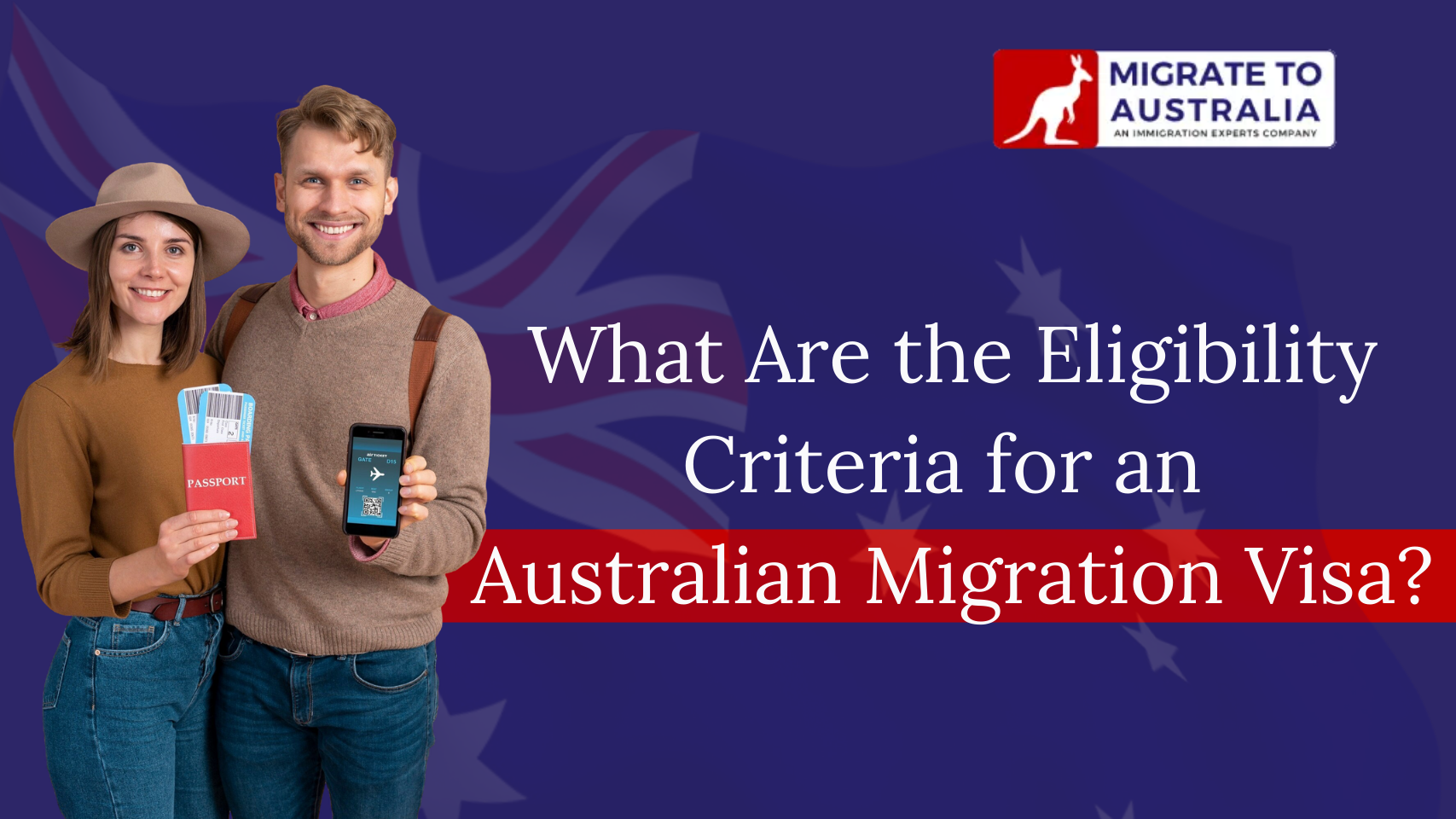Australia has long been a dream destination for individuals seeking better career prospects, a high standard of living, and a welcoming multicultural society. If you’re planning to migrate to Australia, understanding the eligibility criteria for a migration visa is crucial. Migrate visa Australia program is highly structured and merit-based, ensuring that only qualified individuals with skills in demand are granted visas.
This blog explores the eligibility requirements, key steps in the process, and the role of Assessment Authorities like ACS, VETASSESS, and others in verifying your qualifications.
Types of Australian Migration Visas
Before diving into the eligibility criteria, it’s essential to identify which visa suits your needs. Here are the main categories:
- Skilled Migration Visas:
- Subclass 189 (Skilled Independent Visa)
- Subclass 190 (Skilled Nominated Visa)
- Subclass 491 (Skilled Work Regional Visa)
- Employer-Sponsored Visas:
- Subclass 482 (Temporary Skill Shortage Visa)
- Subclass 186 (Employer Nomination Scheme Visa)
- Family Migration Visas:
- Subclass 820/801 (Partner Visa)
- Subclass 101 (Child Visa)
- Business and Investor Visas:
- Subclass 188 (Business Innovation and Investment Visa)
Each visa type has specific requirements, but skilled migration visas are among the most sought after for individuals looking to migrate to Australia based on their qualifications and work experience.
General Eligibility Criteria for Australian Migration Visas
While specific requirements may vary by visa type, most migration visas share the following core eligibility criteria:
1. Occupation on the Skilled Occupation List (SOL)
Australia maintains lists of in-demand occupations, such as the Medium and Long-Term Strategic Skills List (MLTSSL) and the Short-Term Skilled Occupation List (STSOL). Your profession must appear on one of these lists to qualify for a skilled migration visa.
2. Skills Assessment by Relevant Authorities
A key step in the migration process is having your qualifications and work experience assessed by an Assessment Authority. Different occupations are evaluated by specific bodies, including:
- ACS (Australian Computer Society): For IT professionals.
- VETASSESS: For a wide range of non-trade and trade occupations.
- Engineers Australia: For engineers across various disciplines.
- CPA Australia: For accountants and finance professionals.
- Trades Recognition Australia (TRA): For skilled trades like electricians, plumbers, and mechanics.
- Australian Institute for Teaching and School Leadership (AITSL): For teachers and school leaders.
The assessment ensures that your skills align with Australian standards for your occupation.
3. English Language Proficiency
Applicants must demonstrate their ability to communicate effectively in English. Tests like IELTS, PTE, or TOEFL are commonly accepted. The required score depends on the visa type and occupation, typically ranging from “Competent English” (IELTS 6.0) to “Superior English” (IELTS 8.0).
4. Points-Based Criteria
For skilled visas, Australia uses a points system to assess eligibility. You need to score a minimum of 65 points, with points awarded for:
- Age (maximum points for ages 25–32).
- English proficiency.
- Work experience (both in and outside Australia).
- Educational qualifications.
- Partner skills (if applicable).
- State or regional nomination.
5. Health and Character Requirements
All applicants must meet Australia’s health and character standards. This involves:
- Undergoing medical examinations.
- Providing police clearance certificates.
6. Expression of Interest (EOI)
For most skilled visas, you must submit an EOI through the SkillSelect system. The EOI provides details about your skills, experience, and qualifications. If your application ranks high, you may receive an invitation to apply for a visa.
Understanding Skills Assessments by Assessment Authorities
The Assessment Authority plays a vital role in verifying your qualifications. Below are some of the major bodies involved:
ACS (Australian Computer Society)
- Primarily assesses IT professionals like software developers, system analysts, and database administrators.
- Requires applicants to provide degree transcripts, employment references, and a detailed work experience report.
VETASSESS
- Covers a broad range of professions, from marketing specialists to chefs and social workers.
- Assessment includes academic qualifications and at least one year of relevant work experience.
Engineers Australia
- Evaluates engineers in fields such as civil, electrical, and mechanical engineering.
- Applicants must submit a Competency Demonstration Report (CDR) detailing their engineering projects and achievements.
CPA Australia
- Assesses accountants, auditors, and financial professionals.
- Requires evidence of relevant qualifications and membership in professional accounting bodies.
Trades Recognition Australia (TRA)
- Responsible for assessing skilled trades, including electricians, plumbers, and carpenters.
- May involve practical tests in addition to documentary evidence.
AITSL (Australian Institute for Teaching and School Leadership)
- Focuses on teachers applying for skilled visas.
- Applicants must demonstrate teaching qualifications and English language proficiency.
Common Challenges in Meeting Eligibility Criteria
While the process may seem straightforward, applicants often encounter hurdles, including:
1. Inadequate Documentation
Submitting incomplete or incorrect documents to the Assessment Authority can result in delays or rejections. Ensure all qualifications, work references, and transcripts are accurate.
2. Low Points Score
If you fall short of the required 65 points, consider:
- Improving your English proficiency.
- Gaining additional work experience.
- Seeking state or regional nomination.
3. Complex Skills Assessments
Each Assessment Authority has unique requirements. Consulting migration agents with expertise in dealing with bodies like ACS or Engineers Australia can simplify the process.
Benefits of Consulting Migration Experts
Given the complexity of the process, seeking advice from migration experts can significantly improve your chances of success. They provide:
- Detailed guidance on selecting the right visa type.
- Assistance with preparing a compelling EOI.
- Expertise in dealing with Assessment Authorities like VETASSESS, CPA Australia, and more.
Conclusion
Migrating to Australia is a life-changing opportunity, but it requires meticulous preparation and adherence to strict eligibility criteria. Whether you’re an IT professional seeking assessment through ACS, an engineer dealing with Engineers Australia, or a tradesperson applying through TRA, understanding the role of Assessment Authorities and other requirements is critical.
By following the outlined steps and consulting migration experts, you can navigate the process with confidence and turn your dream of migrating to Australia into a reality.

